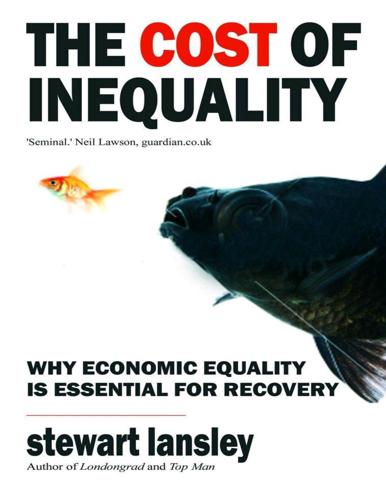
The Cost of Inequality: Why Economic Equality Is Essential for Recovery
by
Stewart Lansley
Published 19 Jan 2012
., Appendix 1. 108 The Times, 14 October, 1996. 109 Daily Mail, 18 April 1996. 110 In the 12 years from 1997 to 2009 alone, the proportion of the working population employed in managerial and professional occupations—from doctors, accountants, lawyers and software engineers to teachers, personnel officers, public servants and retail managers—rose from 34.7 per cent of the employed population to 43.5 per cent. Over the same period, the proportion working as plant and machine operatives fell from 9.8 per cent to 6.6 per cent. ONS, Labour Force Surveys, first quarter 1997 and 2009. 111 M Goos & A Manning, ‘Lousy and Lovely Jobs: The Rising Polarisation of Work in Britain’, Review of Economics and Statistics, 89, 2007, pp 118-33, figure 1. 112 Since 1999, there has been a slight moderation in this trend with a shift in jobs from the lowest paid decile to the second and third deciles, and a continuing, if slowing shift in jobs from the middle to the very top.
…
This shows a growth in the number of jobs at the top tail of the distribution—business executives, senior managers, consultants, data processors, software engineers; a smaller rise in the number of low paid jobs in the lower tail—cleaners, hairdressers, shop assistants and call centre workers; and sharp falls in the number of jobs paying middle wages in 1979—machine setters, foundry labourers, plant and rail signal operatives and a range of routine clerical jobs that have become automated.112 In the immediate post-war decades—across mature economies—there used to be more of a continuum in jobs, wages and opportunities with more intermediate, middleskill, middle-paying work that filled the gap between semi-and unskilled blue-collar and higher paying professional jobs. These provided work for a sizeable group once described by Philip Gould, Labour’s chief pollster under Tony Blair, and one of the leading advisers to the New Labour project, as ‘neither privileged nor deprived’.113 Steadily this group has been shrinking in size, eroded by ‘job polarisation’.114 The result is a country increasingly divided between the ‘privileged’ and the deprived’ with a much smaller group who are ‘neither’. The effect of this ‘vanishing middle’ is that, if people are ranked in order of their incomes, the social shape of Britain looks very different than if they are ranked by their nominal class position.
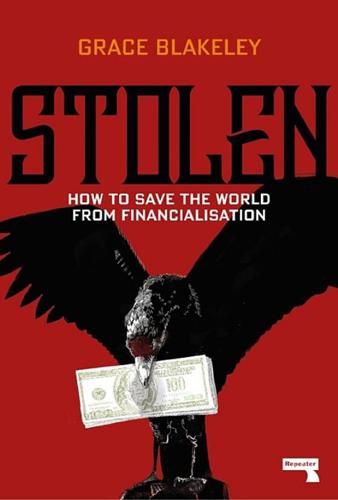
Stolen: How to Save the World From Financialisation
by
Grace Blakeley
Published 9 Sep 2019
Chapter Seven The Way Forward 1 This account draws on: Piketty (2013); Hudson, P. and Tribe, K. (2017) The Contradictions of Capital in the Twenty-First Century, London: Agenda; Harvey, D. (2014) “Afterthoughts on Piketty’s Capital”, http://davidharvey.org/2014/05/afterthoughts-pikettys-capital/; Mandel (1976; 1981); Harvey (2018). 2 This account draws on: Marx (1894); Mandel (1981) 3 See, e.g., Autor, D. and Dord, D. (2012) “The Growth of Low Skill Service Jobs and the Polarisation of the US Labour Market”, MIT Department of Economics. 4 This account draws on: Mazzucato, M. (2011) The Entrepreneurial State: Debunking Public vs Private Sector Myths, London: Anthem; Mazzucato, M. (2015) “The Market Creating State”, RSA Journal, vol. 2. 5 Srnicek N. and Williams A. (2016) Inventing the Future: Postcapitalism and a World Without Work, London: Verso. 6 Eagleton, O. (2017) “Criminalising Anti-Austerity in Ireland”, Jacobin, 21 April. 7 This account draws on: Baker, A. (2013) “The New Political Economy of the Macroprudential Ideational Shift”, New Political Economy, vol. 18. https://www.tandfonline.com/doi/abs/10.1080/13563467.2012.662952; Galati, G. and Moessner, R. (2011) “Macroprudential Policy — A Literature Review”, BIS Working Paper 337; Blanchard, O., Rajan, R., Rogoff and Summers (2016); Bank of England (2009) “The Role of Macroprudential Policy: A Discussion Paper” http://www.bankofengland.co.uk/publications/other/financialstability/roleofmacroprudentialpolicy091121.pdf; Kregel, J. (2014) “Minsky and Dynamic Macroprudential Regulation”, Levy Economics Institute Public Policy Brief No. 131. 8 This account draws on: Blakeley (2018a) 9 Haldane, A. (2012) “The Dog and the Frisbee”, speech given at the Federal Reserve Bank of Kansas City’s 36th economic policy symposium, 31 August. 10 IPPR (2018) 11 See, e.g., Stirling, A. (2018) “Just About Managing Demand: Reforming the UK’s Macroeconomic Policy Framework”, IPPR. 12 See, e.g., Roberts, C. and Lawrence, M. (2018) “Our Common Wealth: A Citizens’ Wealth Fund for the UK”, IPPR. 13 See, e.g., Murphy, R. (2017) Dirty Secrets: How Tax Havens Destroy the Economy, London: Verso ACKNOWLEDGEMENTS Writing a book is hard.
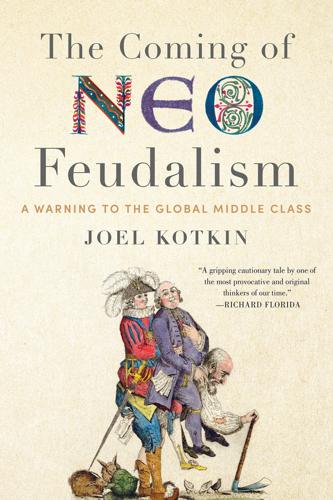
The Coming of Neo-Feudalism: A Warning to the Global Middle Class
by
Joel Kotkin
Published 11 May 2020
article5795. 40 Alan Berube, “Middle-skilled workers still making up for lost ground on earnings,” Brookings, October 19, 2016, https://www.brookings.edu/blog/the-avenue/2016/10/19/middle-skilled-workers-still-making-up-for-lost-ground-on-earnings/; Tavia Grant, “The continuing decline of the ‘middle-skill’ worker,” Globe and Mail, June 3, 2013, https://www.theglobeandmail.com/report-on-business/economy/jobs/the-continuing-decline-of-the-middle-skill-worker/article12303799/. 41 Enrique Fernandez-Macias, “Job Polarisation in Europe: Are Mid-Skilled Jobs Disappearing?” Social Europe, July 30, 2015, https://www.socialeurope.eu/job-polarisation-in-europe-are-mid-skilled-jobs-disappearing; Margo Hoftijzer and Lucas Gortazar, Skills and Europe’s Labor Market, World Bank Report on the European Union, World Bank Group, 2018, http://pubdocs. worldbank.org/en/115971529687983521/EU-GU-Skills-and-Labor-Markets-final-5-29-2018.pdf; Christophe Guilluy, Twilight of the Elites: Prosperity, the Periphery, and the Future of France, trans.
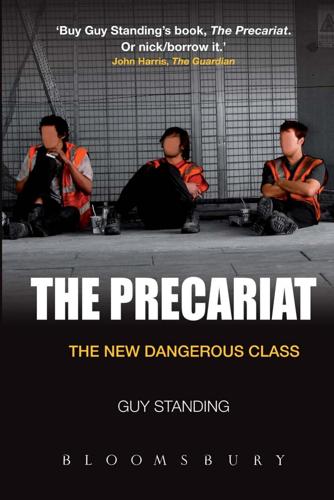
The Precariat: The New Dangerous Class
by
Guy Standing
Published 27 Feb 2011
H. (2009), ‘Analysing Social Inequality: A Critique of Two Recent Contributions from Economics and Epidemiology’, European Sociological Review, 22 October. Available at http://esr.oxfordjournals.org/content/early/2009/10/22/esr. jcp046.abstract [accessed 2 December 2010]. Goos, M. and Manning, A. (2007), ‘Lousy and Lovely Jobs: The Rising Polarisation of Work in Britain’, Review of Economics and Statistics, 89(1): 118–33. Gorz, A. (1982), Farewell to the Working Class: An Essay on Post-Industrial Socialism, London: Pluto Press. [Original published as Adieux au proletariat, Paris: Galilée, 1980.] Green, H. (2010), The Company Town: The Industrial Edens and Satanic Mills That Shaped the American Economy, New York: Basic Books.
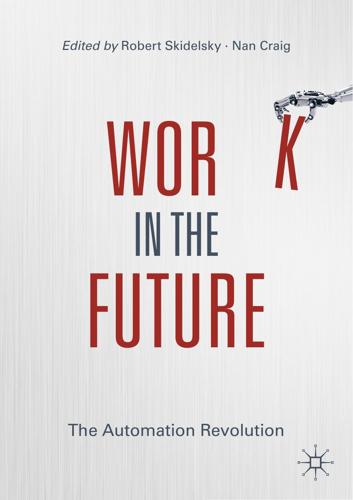
Work in the Future The Automation Revolution-Palgrave MacMillan (2019)
by
Robert Skidelsky Nan Craig
Published 15 Mar 2020
The Economic Institutions of Capitalism. New York: Free Press. 7 Attitudes to Work Pierre-Michel Menger My presentation has to do with the attitudes to work in France and Europe, mainly through the channel of the welfarist understanding of work, as it is challenged now by current and increasing job polarisation. There are two opposed characterisations of work. One highlights its instrumental, monetary value, and the other one highlights its expressive, non-monetary value. The duality of semantics articulates that quite well, opposing labour to work, burden to achievement. It is rather easy to define the negative value of work as this set of painful constraints and efforts that hamper free self-disposal.
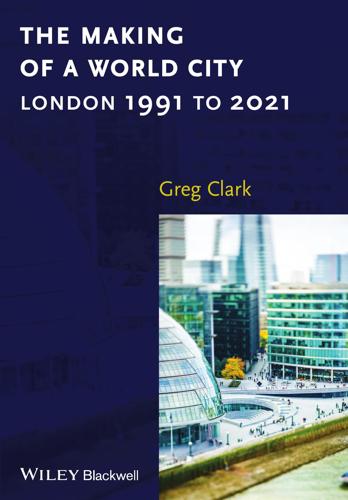
The Making of a World City: London 1991 to 2021
by
Greg Clark
Published 31 Dec 2014
But social and economic dislocation persists, and contributed to the events of August 2011 when London was seized by rioting in several of its inner and outer suburbs. London has, on the one hand, successfully achieved the largest proportion of highlyskilled workers of any region in the UK. But the feared job polarisation, whereby intermediate-level jobs declined and the percentage of people with a lack of key skills rose, has materialised according to London: World City’s medium-to-worst case scenario. Just as ‘a tale of two cities’ was a unifying theme for new New York City Mayor Bill de Blasio’s winning campaign in 2013, it is also set to define the political debate in London in the years to come.